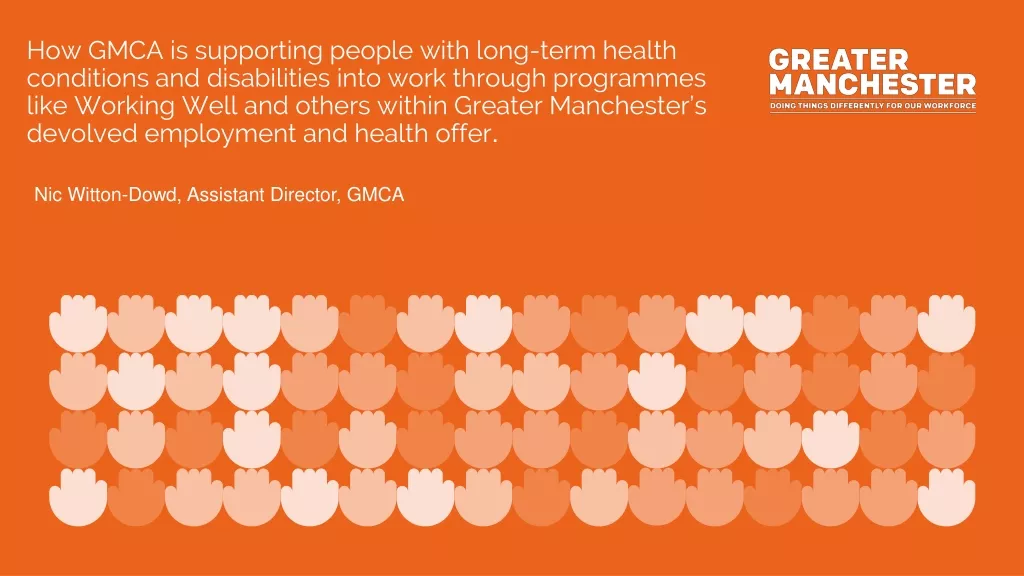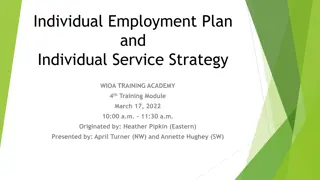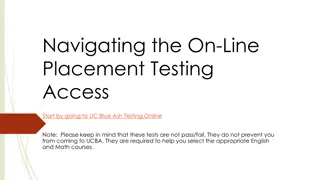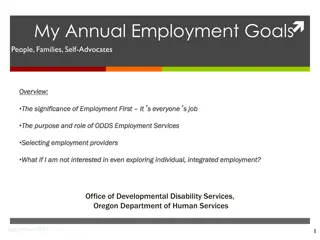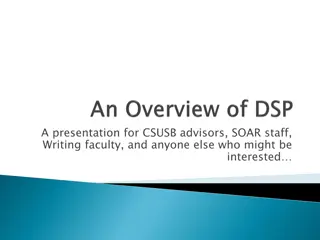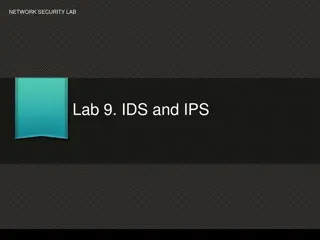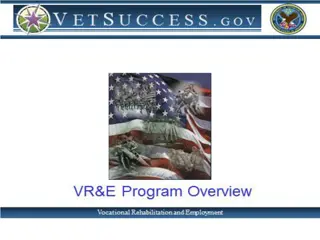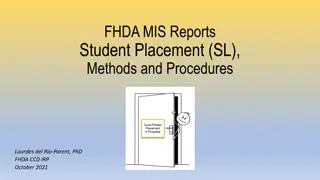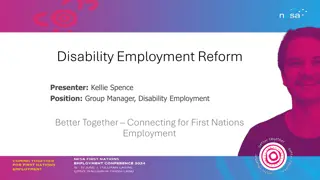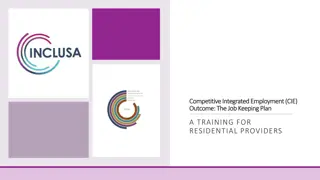The Impact of Individual Placement and Support (IPS) in Employment
Individual Placement and Support (IPS) is an evidence-based practice that has shown significant advantages in promoting competitive employment rates compared to traditional rehabilitation approaches. Studies have demonstrated its effectiveness across various populations, including those with mental illness, substance use disorders, and different demographic groups. Ongoing research is exploring new areas where IPS can make a difference, highlighting its potential in addressing a wide range of challenges individuals face in securing and maintaining employment.
Download Presentation

Please find below an Image/Link to download the presentation.
The content on the website is provided AS IS for your information and personal use only. It may not be sold, licensed, or shared on other websites without obtaining consent from the author. Download presentation by click this link. If you encounter any issues during the download, it is possible that the publisher has removed the file from their server.
E N D
Presentation Transcript
Individual Placement and Support - IPS The Evidence-Based Practice for Employment Updated 7.27.21
Research Originally studied and validated with people with serious mental illness, including people with co-occurring substance use disorders
Research IPS has been compared to traditional vocational rehabilitation approaches that typically include stepwise features such as prevocational assessment, sheltered setting, and volunteer work. In 28 randomized controlled trials, 27 showed a significant advantage for IPS.
Competitive Employment Rates in 28 Randomized Controlled Trials of IPS 90% 80% 70% 60% 50% 40% 30% 20% 10% 0% 96 NH 12 AL 07 IL 04 CT 20 19 08 HK 20 CA 18 US 08 14 06 SC 99 DC 12 CA 07 09 HK 13 US 17 CHI 06 15 14 JAP 14 15 19 15 15 IL 02 MD 11 UK BC/CAN AUST AUST SWZ EUR QUE SWE HOL AUST DEN SWZ IPS Control Control 2 4
Overall Findings for 28 RCTs 27 of 28 studies showed a significant advantage for IPS Mean competitive employment rate: 55% for IPS 25% for controls
IPS is Effective in a Wide Variety of Target Populations PTSD diagnosis Mental illness + substance use Older adults First episode of psychosis Homeless Criminal justice history Disability beneficiaries Various racial and ethnic groups
New Areas of IPS Research Substance use disorders Substance use disorders Common mental disorders Common mental disorders Intellectual disabilities Intellectual disabilities Autism spectrum disorder Autism spectrum disorder TANF TANF Temporary Aid to Needy Families Temporary Aid to Needy Families Spinal cord injury Spinal cord injury Chronic pain Chronic pain Refugees Refugees Felony convictions leaving jail or prison Felony convictions leaving jail or prison FQHC FQHC federally qualified health centers federally qualified health centers
Why Focus on Employment and Careers? Considered by many as an important part of recovery Most people with serious mental illness want to work Employment is a typical role for adults in our society Cost-effective alternative to day treatment
Benefits of Steady Competitive Employment Increased income Improved self esteem Improved social networks Increased quality of life Better control of symptoms Reduced hospitalization Reduced substance use Reduced use of mental health services
Negative Effects of Unemployment in General Population Increased substance abuse Increased physical problems Increased psychiatric disorders Reduced self esteem Loss of social contacts Alienation and apathy (Warr, 1987)
What People Say When you are working, you are part of the real world. You feel connected. Having a job gives me stability. I have something to look forward to every day. In the past, people might have used labels to describe me such as homeless, mentally ill, and welfare mother. Now my titles are financial administrator, college student, and working mom.
What People Say I was really glad that my son s employment counselor asked me about work ideas. My son wanted me to be a part of the team. And he landed a job that I suggested. I worried that if my daughter got a job, she would feel stressed. But just the opposite happened. She is doing much better than before.
What People Say Andre is as good as any worker that I have. Automotive parts store manager I count on Juanita. If she is feeling stressed, she sits in a room by herself for awhile. That s okay; she gets the job done. Bakery supervisor The employment counselor helped me understand why Tony paces. It s okay in the security business. Security business owner
A Strength-based Approach to Wellness and Recovery Where does a person draw their strengths? Where does a person draw their strengths? Personal characteristics Personal characteristics Past experiences Past experiences Resources Resources Supports Supports
Who Provides IPS Services? IPS specialists (sometimes called employment specialists or supported employment and education specialists) provide direct assistance with work and education/technical training. IPS specialists work closely with a team of practitioners who provide services for the same group of people.
IPS Principles Open to anyone who wants to work Focus on competitive employment Rapid job search Targeted job development Client preferences guide decisions Individualized long-term supports Integrated with treatment Benefits counseling included
Open to Anyone Who Wants to Work Eligibility is based on consumer choice People are not excluded because of diagnosis, recent hospitalizations, criminal justice history, or work readiness criteria
Focus on Competitive Employment IPS specialists help people find jobs that exist in the open labor market and pay the same as others in a similar position (at least minimum wage), including part-time and full-time jobs. People are not steered into sheltered jobs (that are set aside for people with disabilities) but work in community settings with others who do not have disabilities.
Rapid Job Search IPS specialists help people start looking for jobs within one month of starting the program. Pre-employment assessment, training and counseling are not required and are kept to a minimum. IPS specialists help people explore the world of work at a pace that is right for the individual.
Targeted Job Development Based on individuals interests, IPS specialists build relationships with employers to learn about the employers needs in order to identify qualified job candidates. IPS specialists make multiple visits to the same employers to develop relationships and average six face-to-face contacts with hiring managers per week.
Individual Preferences Guide Decisions The job search is based on individual preferences, strengths, and work experiences, not on a pool of jobs that are readily available. Job seekers indicate preferences for job type, work hours, and types of job supports.
Individualized Long-Term Supports IPS specialists provide support for as long as needed and desired, without arbitrary time limits. Job supports are individualized based on the needs of the person and what will promote a positive work experience. IPS specialists help people with job changes and career advancement, including additional schooling and training.
IPS is Integrated with Treatment IPS specialists meet at least weekly with the team of providers who serve the same group of people, for example, care coordinators, therapists, medication providers, housing specialists. The team meets together regularly to review clients status and plans coordinated, recovery-oriented services.
Personalized Benefits Counseling IPS specialists refer people for comprehensive, individualized benefits planning by a trained benefits specialist so they can make informed decisions about starting or changing jobs.
Key Factors in Implementation Build consensus Maximize financing Examine agency philosophy Identify leadership Key on organizational structure Provide ongoing training/technical assistance Make time commitment Track process and outcomes
Build Consensus Develop a steering committee to oversee implementation process Include representatives from all stakeholder groups: Local and state mental health and vocational rehabilitation leaders Funders Providers Service recipients Family members Employers School counselors Educate stakeholders about the practice
Maximize Funding Determine how IPS services can be funded Which funding sources pay for which parts of IPS? Explore funding (in the US) from Medicaid, state vocational rehabilitation funds, state mental health contracts and grants Approximately $5,000 per person in the first year and typically accruing limited costs thereafter (Salkever, 2013). Reallocate resources to IPS when feasible
Examine Agency Philosophy Determine if service agency s philosophy, mission statement, and service paradigm are consistent with a recovery-oriented IPS approach. Are there competing programs such as day treatment and/or stepwise vocational services that may include sheltered work, work readiness assessments, volunteer work?
Identify Leadership Identify a committed agency IPS champion who has the authority to oversee and ensure implementation. Leaders at all levels, including the agency director, visibly demonstrate support for IPS and consumers gaining competitive integrated employment. Leadership from state vocational rehabilitation reinforces commitment to IPS and collaboration with IPS services. Critical role of IPS supervisor in program success.
Organizational Structure IPS specialists join one or two treatment teams, share office space, attend weekly treatment team meetings to discuss shared clients. Mental health treatment team integrates IPS, benefits counseling, care management, medication management, and substance use treatment. IPS supervisor provides weekly group outcomes-based supervision to IPS specialists.
Provide Ongoing Training/Technical Assistance Agency staff receive initial training on IPS and the roles of different practitioners (e.g., care managers, therapists, medication prescribers, housing specialists) in supporting people s work efforts. IPS trainer provides ongoing training and technical assistance to help the agency reach good IPS implementation. IPS supervisor trains and mentors new staff on IPS services.
Make Time Commitment Typically, 6-12 months to build agency interest to implement IPS, organize team structure, access stable funding, and develop staff skills and confidence to implement IPS.
Track Process and Outcomes Track competitive integrated employment outcomes on a monthly and quarterly basis. Set realistic incremental goals. Baseline IPS fidelity review typically occurs 6-9 months after program start when people have obtained employment, and conducted every six months until reaching at least 100 on the 25-item IPS Fidelity Scale, and yearly thereafter.
Summary People with serious mental illness do want to work and can work in competitive integrated employment. IPS is a successful employment intervention for a wide variety of populations. IPS is an evidence-based practice that includes program manuals and an IPS Fidelity Scale to serve as roadmaps for good program implementation. Agency leaders organize services, maximize funding, provide training and supervision, monitor implementation and track outcomes to ensure high-quality IPS services.
Resources www.IPSworks.org Online courses for practitioners, supervisors, VR counselors, fidelity reviewers IPS Supported Employment: A Practical Guide (2013) IPS Supported Employment for Youth (2017) 25-item IPS Supported Employment Fidelity Scale












